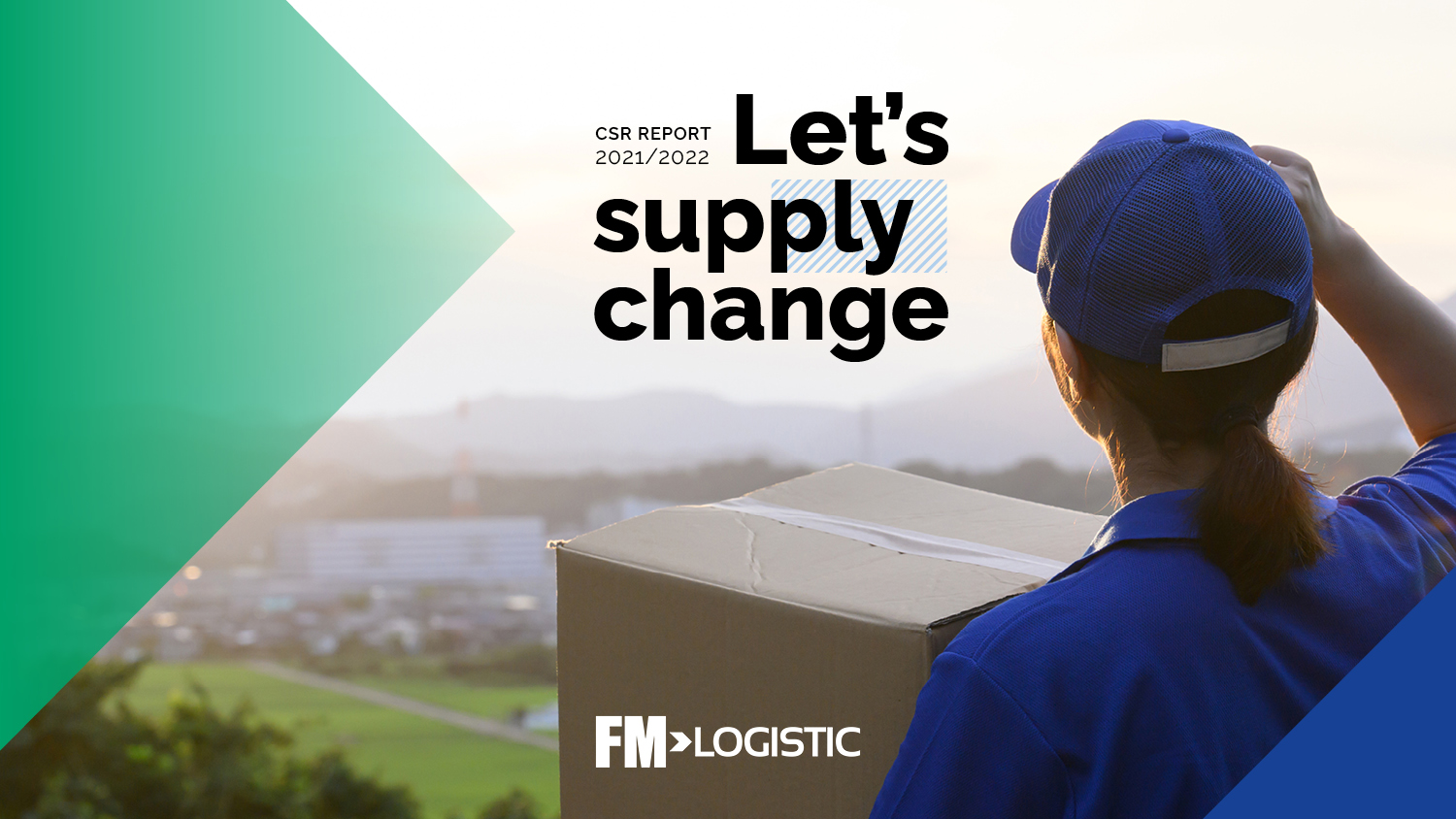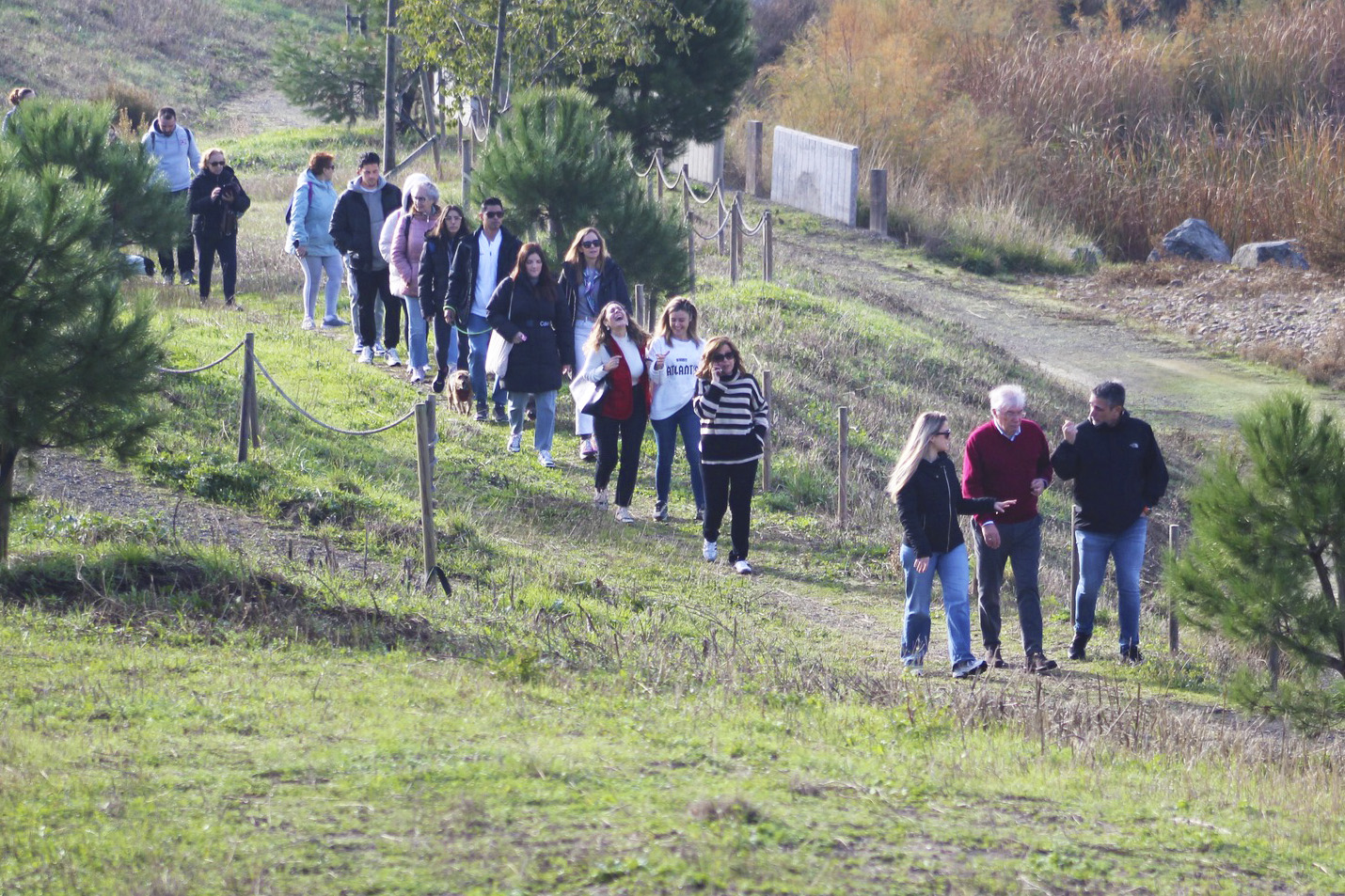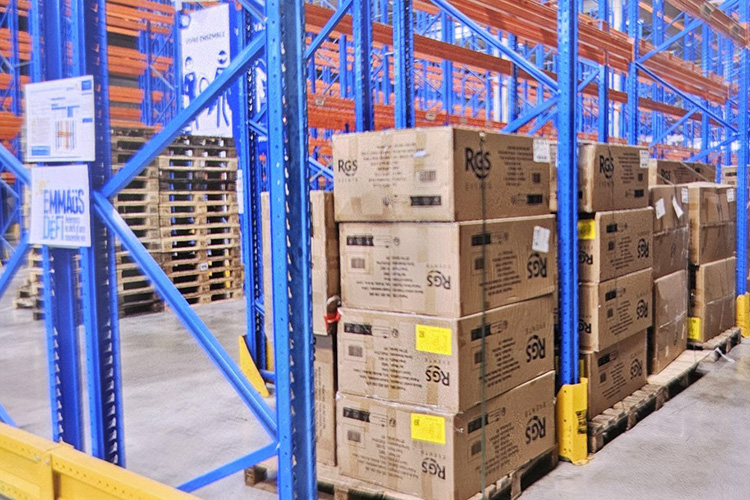- In late 2021, FM Logistic unveiled its Powering 2030 plan aimed at meeting omnichannel and urban logistics challenges by sustainably transforming its supply chains and achieving carbon neutrality across all its facilities by 2030.
- One year down the line and its ambition to chart a sustainable trajectory is as strong as ever, with initiatives like purchasing and producing sustainable energy increasing across the group.
- True to its “Supply Change” signature, the group’s CSR report rounds up the progress achieved on its path to sustainable development based on three priorities: taking care of employees, changing the environmental impact of its business and co-constructing a sustainable supply chain.
“It’s by nurturing trust, reconciling performance with the environment and staying attuned to
the needs of society that we’re building our company project. Commitment to sustainable logistics is in our DNA. FM Logistic’s social responsability movement follows in the footsteps of its founders, who have always made people the focus of their projects,” states FM Logistic chairman Jean-Christophe Machet.
Taking care of 28,600 employees
For FM Logistic, providing safe and fair working conditions is a priority and achieving best-in-class ranking for accident rates in each country by next year is a primary goal. The group harnesses innovation to enhance the health and safety of its employees, notably through virtual reality and connected work equipment. In France, FM Logistic has teamed up with the Compiègne University of Technology to develop the Ergoskel, which is designed to prevent musculoskeletal disorders associated with parcel handling. The goal is to deploy 150 ergoskeletons across the sites by early 2023.
The company aims to win recognition as a high-quality employer in every country where it operates. The employee satisfaction rate currently stands at 74%. Its inclusion in Forbes World’s Best Employers list in 2022 bears witness to its commitment to well-being in the workplace.
FM Logistic develops its employees’ skills and promotes mobility and development within the group through FM University, its in-house university. Confident that diverse backgrounds and experiences are an asset, the Group strives to create an inclusive working environment. Its Egapro index score of 94/100 testifies to its efforts to reduce the gender pay gap within the company. To further commit to equal opportunities and the inclusion of disabled employees, FM Logistic continues to develop its network of disability-friendly companies with the forthcoming opening of four new facilities in France.
Changing the environmental impact of businesses
On the environmental forefront, FM Logistic is aiming for carbon neutrality across all its facilities by the year 2030. As outlined in its energy sobriety plan, the initial phase of the company’s project involves the eco-design of its buildings. The Group’s platforms are developed to optimize operational and energy performance from design all the way to operation. Every platform built since 2012 is LEED ® and HQE (TM) certified, a label that attests notably to high energy performance. For the 2021/22 financial year, FM Logistic has curbed carbon emissions in its warehouses by 25%, exceeding the target set at 20%.
Concurrently, FM Logistic is looking to accelerate its own energy production. Photovoltaic panels on all its platforms worldwide are already producing solar energy totaling 27,838 MWp. The Group is also banking on producing green hydrogen with the goal of creating a decarbonized energy loop and powering its warehouses, The first hydrogen production unit at its Illescas facility in Spain confirms FM Logistic’s position as a decarbonizing pioneer in its sector.
As volumes and flows increase, transportation must also be factored into the decarbonization process. FM logistic has affirmed its objective to reduce its transportation greenhouse gas emissions by 30%. To achieve this, the Group primarily focuses on optimizing transportation by pooling deliveries, planning the number of vehicles deployed, fine tuning parcel size and using low-emission vehicles wherever possible. In France, for instance, 30 of its trucks run on Oléo 100, a French-made biofuel that reduces CO2 emissions by 65% vs. diesel. To date, 3/4 of the flows are carried by vehicles achieving Euro 5 and better certification worldwide.
Co-building a sustainable supply chain
To meet environmental, social and ethical challenges, it is essential for every link in the supply chain to cooperate. FM Logistic banks on collective intelligence by partnering with all stakeholders in the industry: customers, suppliers, local businesses and communities, start-ups, consumers, service providers and research centers.
The group supports its customers during their transition by delivering more sustainable logistics solutions tailored to their needs and objectives. Notably, the company is carrying out pilots on bulk commodities for several retail chains in France. FM Logistic wants all of the Group’s business lines to include sustainable offerings by 2050. These currently generate 13% of turnover, a proportion which the group aims to ramp up to 20% by 2022/23.
To empower its customers to assess their carbon footprint and identify improvement levers, the Group has developed a scorecard that measures the environmental impact of warehousing and transport activities. The dashboard shows the CO2-equivalent impact of logistics services per customer and per facility, as well as the three significant impacts on society: support for employment and business performance, carbon footprint and air pollution. Today, the majority of customers have a sustainability scorecard.
“While our business lines have changed over the years, our goal remains the same: supporting our customers by creating sustainable ecosystems and cooperating with all our stakeholders. We are convinced that we have a role to play in helping our customers optimize their supply chains, making them more resilient, sustainable and responsive to their consumers’ requirements,” adds Jean-Christophe Machet.
FM Logistic’s goal is to promote the transition to sustainable omnichannel supply chains. Incorporated in 1967, this family-owned company is one of the main logistics players in France and globally, generating a turnover of €1.4 billion. FM Logistic delivers its expertise in consumer product logistics to major manufacturers, distributors and e-commerce players.
Its services span all stages of the supply chain: domestic and international transport; receiving, warehousing and inventory management; fulfilment and dispatch of e-commerce and store orders; co-packing; and control tower services. FM Logistic also offers services that support the development of new consumer trends, such as bulk and click-and-collect.
FM Logistic is among the best employers in its industry, as testified by the Forbes Best Employers 2021 ranking. It employs over 29,000 people across 14 countries in Europe, Asia and Latin America.
Albane Gringoire / Victoria Blin
T: +33 7 86 03 37 00 / +33 6 74 59 06 31



